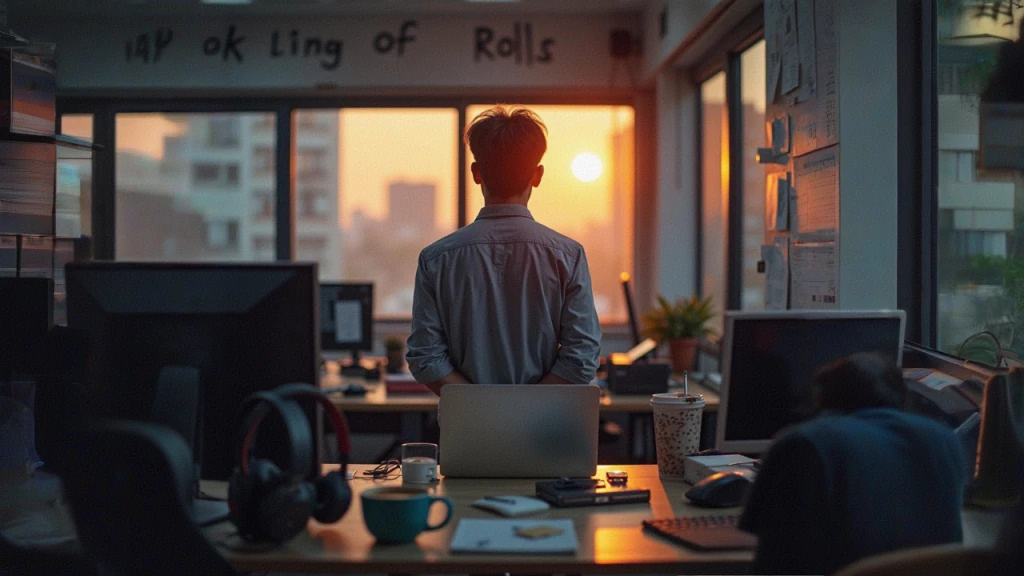A programmer's side gig is my main job
Today, I saw a post discussing side jobs on V2EX, and considering my current situation, I want to talk about my main job and side gigs.
My main job is gone, and the side gigs they’re discussing could potentially be my main job. The only thing that could count as a side gig in recent years might be passive income, but with the poor market conditions, it’s been more like negative income 😒, just sitting there doing nothing. I used to focus all my energy on increasing my main job’s income because, based on past experience, investing time in my main job had the best return. But now, it seems that this approach wasn’t very wise—the times have changed.
There are two extreme views among programmers. The first is, “All other paths are inferior; only technical skills reign supreme. If I stop being a programmer, I can crush anything else with ease.” The second is, “If I’m not a programmer, I’m good for nothing.”
Breaking out of the programmer mindset (tech-first), there are indeed many companies that are tech-driven (Google, Apple, Amazon). But besides technology, they also need to manage other aspects to keep the company running. Just like how the brain is the most important part of a human body, but it still needs other organs to maintain bodily functions. There are also many companies that are not tech-driven, and the nuances within those industries aren’t something you can learn quickly. As the saying goes, “Changing industries is like crossing a mountain.”
The exploration of my new main career hasn’t been going well; the video views are dismal, and it feels like my efforts aren’t yielding results. Compared to before, when just improving my skills would lead to a salary increase, I’m starting to doubt whether this new path is viable. This has created a sense of urgency in me, worrying about survival, though it’s really a desire to restore my income to its previous level.
Then I saw a couple on Bilibili who saved over 700,000 yuan and retired early to live in Yunnan, which reminded me of my original goal of independent survival—finding a passive income stream that can support me, whether through low-cost replicable works, leveraging other people’s time, or using money to make more money.
Ten years ago, I was also searching for a career direction, but I had no skills and money. Compared to back then, I’m no longer anxious about survival; I have a skill that can support me (though maybe it’s not useful right now) and savings. I can take my time, do things slowly and well. If my mindset isn’t right, how can I make good videos?
Seeing a V2EX user share his side gig experience, I really admire his hustle. A thought crossed my mind: If I hadn’t been so fixated on technical migration, I might have made a lot of money too. But if I hadn’t been so persistent, I wouldn’t have the mindset, feelings, and decision to live independently that I do today—a conflicted feeling.
In recent years, I’ve focused on technology, leaving little time to study business. I’m picking up my interest in business again and staying sensitive to it—this is the first step in breaking out of the programmer mindset. I’m paying attention to future trends, market demands, finding real needs, and the technologies of tomorrow. But you never know, my programming skills might come in handy one day.
Right now, I’m reading Rework. I’m also on a path of starting over. Even if the product I’m working on now is ugly and flawed, improving it along the way is better than launching something perfect after too long. Making videos is like my product—I’ll improve as I go, focusing on my unique strengths rather than trying to be comprehensive.
Working for myself feels great. I can do things at my own pace—when it rains, I’ll write articles or edit videos; when the weather is clear, I’ll go out and film fishing videos. Although short-term income is unlikely to surpass what I made as a programmer, my mood is better, I sleep well, and my health has improved. Overall, the pressure is much less.
For now, I’m exploring new directions back in my hometown. Life here has its inconveniences; big cities have convenient transportation, fast delivery, generally higher quality of people, and better healthcare resources. These are the costs of freedom. But I’m not necessarily leaving big cities—wherever I can survive is where I’ll go. My dream is to wander the world as a digital nomad.
Best wishes to those who keep striving for financial and spiritual freedom.



